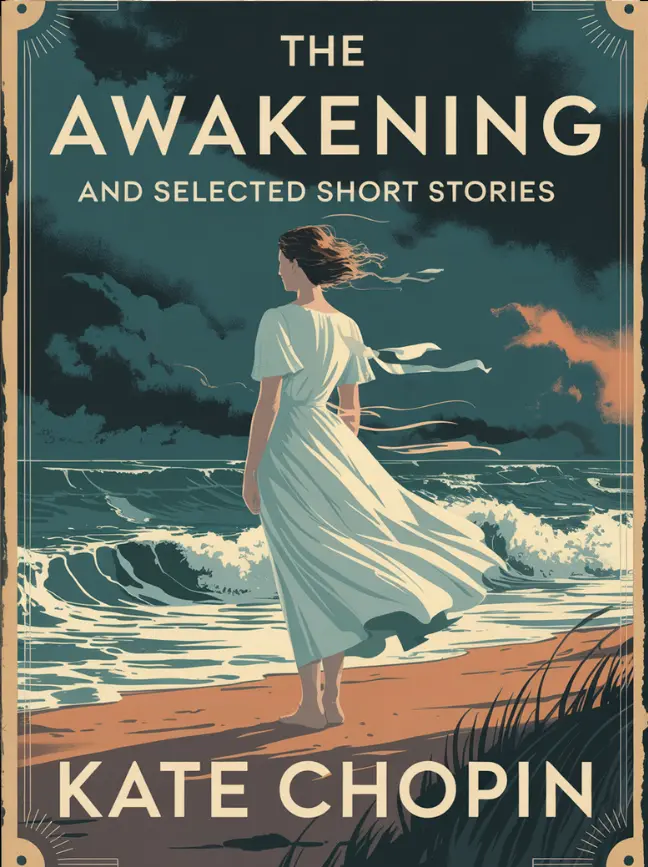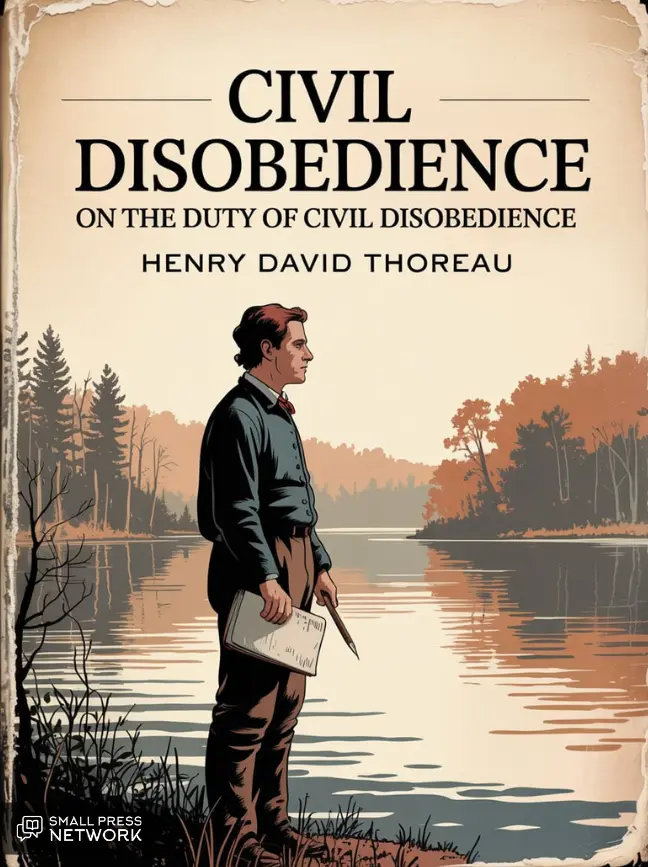158
Chapter XVII
Mounting his horse again Prince Andrew lingered with the battery, looking at the puff from the gun that had sent the ball. His eyes ran rapidly over the wide space, but he only saw that the hitherto motionless masses of the French now swayed and that there really was a battery to their left. The smoke above it had not yet dispersed. Two mounted Frenchmen, probably adjutants, were galloping up the hill. A small but distinctly visible enemy column was moving down the hill, probably to strengthen the front line. The smoke of the first shot had not yet dispersed before another puff appeared, followed by a report. The battle had begun!
Prince Andrew turned his horse and galloped back to Grunth to find Prince Bagratión. He heard the cannonade behind him growing louder and more frequent. Evidently our guns had begun to reply. From the bottom of the slope, where the parleys had taken place, came the report of musketry.
Lemarrois had just arrived at a gallop with Bonaparte’s stern letter, and Murat, humiliated and anxious to expiate his fault, had at once moved his forces to attack the center and outflank both the Russian wings, hoping before evening and before the arrival of the Emperor to crush the contemptible detachment that stood before him.
“It has begun. Here it is!” thought Prince Andrew, feeling the blood rush to his heart. “But where and how will my Toulon present itself?”
Passing between the companies that had been eating porridge and drinking vodka a quarter of an hour before, he saw everywhere the same rapid movement of soldiers forming ranks and getting their muskets ready, and on all their faces he recognized the same eagerness that filled his heart. “It has begun! Here it is, dreadful but enjoyable!” was what the face of each soldier and each officer seemed to say.
Before he had reached the embankments that were being thrown up, he saw, in the light of the dull autumn evening, mounted men coming toward him. The foremost, wearing a Cossack cloak and lambskin cap and riding a white horse, was Prince Bagratión. Prince Andrew stopped, waiting for him to come up; Prince Bagratión reined in his horse and recognizing Prince Andrew nodded to him. He still looked ahead while Prince Andrew told him what he had seen.
The feeling, “It has begun! Here it is!” was seen even on Prince Bagratión’s hard brown face with its half-closed, dull, sleepy eyes. Prince Andrew gazed with anxious curiosity at that impassive face and wished he could tell what, if anything, this man was thinking and feeling at that moment. “Is there anything at all behind that impassive face?” Prince Andrew asked himself as he looked. Prince Bagratión bent his head in sign of agreement with what Prince Andrew told him, and said, “Very good!” in a tone that seemed to imply that everything that took place and was reported to him was exactly what he had foreseen. Prince Andrew, out of breath with his rapid ride, spoke quickly. Prince Bagratión, uttering his words with an Oriental accent, spoke particularly slowly, as if to impress the fact that there was no need to hurry. However, he put his horse to a trot in the direction of Túshin’s battery. Prince Andrew followed with the suite. Behind Prince Bagratión rode an officer of the suite, the prince’s personal adjutant, Zherkóv, an orderly officer, the staff officer on duty, riding a fine bobtailed horse, and a civilian—an accountant who had asked permission to be present at the battle out of curiosity. The accountant, a stout, full-faced man, looked around him with a naïve smile of satisfaction and presented a strange appearance among the hussars, Cossacks, and adjutants, in his camlet coat, as he jolted on his horse with a convoy officer’s saddle.
159
“He wants to see a battle,” said Zherkóv to Bolkónski, pointing to the accountant, “but he feels a pain in the pit of his stomach already.”
“Oh, leave off!” said the accountant with a beaming but rather cunning smile, as if flattered at being made the subject of Zherkóv’s joke, and purposely trying to appear stupider than he really was.
“It is very strange, mon Monsieur Prince,” said the staff officer. (He remembered that in French there is some peculiar way of addressing a prince, but could not get it quite right.) By this time they were all approaching Túshin’s battery, and a ball struck the ground in front of them.
“What’s that that has fallen?” asked the accountant with a naïve smile.
“A French pancake,” answered Zherkóv.
“So that’s what they hit with?” asked the accountant. “How awful!”
He seemed to swell with satisfaction. He had hardly finished speaking when they again heard an unexpectedly violent whistling which suddenly ended with a thud into something soft… f- f-flop! and a Cossack, riding a little to their right and behind the accountant, crashed to earth with his horse. Zherkóv and the staff officer bent over their saddles and turned their horses away. The accountant stopped, facing the Cossack, and examined him with attentive curiosity. The Cossack was dead, but the horse still struggled.
Prince Bagratión screwed up his eyes, looked round, and, seeing the cause of the confusion, turned away with indifference, as if to say, “Is it worth while noticing trifles?” He reined in his horse with the care of a skillful rider and, slightly bending over, disengaged his saber which had caught in his cloak. It was an old-fashioned saber of a kind no longer in general use. Prince Andrew remembered the story of Suvórov giving his saber to Bagratión in Italy, and the recollection was particularly pleasant at that moment. They had reached the battery at which Prince Andrew had been when he examined the battlefield.
“Whose company?” asked Prince Bagratión of an artilleryman standing by the ammunition wagon.
He asked, “Whose company?” but he really meant, “Are you frightened here?” and the artilleryman understood him.
“Captain Túshin’s, your excellency!” shouted the red-haired, freckled gunner in a merry voice, standing to attention.
“Yes, yes,” muttered Bagratión as if considering something, and he rode past the limbers to the farthest cannon.
As he approached, a ringing shot issued from it deafening him and his suite, and in the smoke that suddenly surrounded the gun they could see the gunners who had seized it straining to roll it quickly back to its former position. A huge, broad-shouldered gunner, Number One, holding a mop, his legs far apart, sprang to the wheel; while Number Two with a trembling hand placed a charge in the cannon’s mouth. The short, round-shouldered Captain Túshin, stumbling over the tail of the gun carriage, moved forward and, not noticing the general, looked out shading his eyes with his small hand.
“Lift it two lines more and it will be just right,” cried he in a feeble voice to which he tried to impart a dashing note, ill-suited to his weak figure. “Number Two!” he squeaked. “Fire, Medvédev!”
160
Bagratión called to him, and Túshin, raising three fingers to his cap with a bashful and awkward gesture not at all like a military salute but like a priest’s benediction, approached the general. Though Túshin’s guns had been intended to cannonade the valley, he was firing incendiary balls at the village of Schön Grabern visible just opposite, in front of which large masses of French were advancing.
No one had given Túshin orders where and at what to fire, but after consulting his sergeant major, Zakharchénko, for whom he had great respect, he had decided that it would be a good thing to set fire to the village. “Very good!” said Bagratión in reply to the officer’s report, and began deliberately to examine the whole battlefield extended before him. The French had advanced nearest on our right. Below the height on which the Kiev regiment was stationed, in the hollow where the rivulet flowed, the soul-stirring rolling and crackling of musketry was heard, and much farther to the right beyond the dragoons, the officer of the suite pointed out to Bagratión a French column that was outflanking us. To the left the horizon bounded by the adjacent wood. Prince Bagratión ordered two battalions from the center to be sent to reinforce the right flank. The officer of the suite ventured to remark to the prince that if these battalions went away, the guns would remain without support. Prince Bagratión turned to the officer and with his dull eyes looked at him in silence. It seemed to Prince Andrew that the officer’s remark was just and that really no answer could be made to it. But at that moment an adjutant galloped up with a message from the commander of the regiment in the hollow and news that immense masses of the French were coming down upon them and that his regiment was in disorder and was retreating upon the Kiev grenadiers. Prince Bagratión bowed his head in sign of assent and approval. He rode off at a walk to the right and sent an adjutant to the dragoons with orders to attack the French. But this adjutant returned half an hour later with the news that the commander of the dragoons had already retreated beyond the dip in the ground, as a heavy fire had been opened on him and he was losing men uselessly, and so had hastened to throw some sharpshooters into the wood.
“Very good!” said Bagratión.
As he was leaving the battery, firing was heard on the left also, and as it was too far to the left flank for him to have time to go there himself, Prince Bagratión sent Zherkóv to tell the general in command (the one who had paraded his regiment before Kutúzov at Braunau) that he must retreat as quickly as possible behind the hollow in the rear, as the right flank would probably not be able to withstand the enemy’s attack very long. About Túshin and the battalion that had been in support of his battery all was forgotten. Prince Andrew listened attentively to Bagratión’s colloquies with the commanding officers and the orders he gave them and, to his surprise, found that no orders were really given, but that Prince Bagratión tried to make it appear that everything done by necessity, by accident, or by the will of subordinate commanders was done, if not by his direct command, at least in accord with his intentions. Prince Andrew noticed, however, that though what happened was due to chance and was independent of the commander’s will, owing to the tact Bagratión showed, his presence was very valuable. Officers who approached him with disturbed countenances became calm; soldiers and officers greeted him gaily, grew more cheerful in his presence, and were evidently anxious to display their courage before him.





